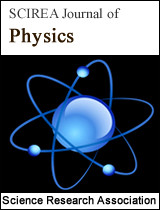The Deductibility of the Categorical Syllogisms AII-1 from the Perspective of Knowledge Reasoning
DOI: 10.54647/physics140624 47 Downloads 11902 Views
Author(s)
Abstract
This paper aims to realize the reduction between/among different valid categorical syllogisms and establish a concise formal axiomatic system for categorical syllogistic. Making full use of the tripartite structure of categorical propositions, the symmetry of no and some, the definable relationship between the quantifier all and the other three Aristotelian quantifiers, and some reasoning rules and facts in first-order logic, this paper takes the syllogism AII-1 as a basic axiom and derives the remaining 23 valid syllogisms. It is hoped that this research will not only promote the development of modern logic, but also provide assistance for machine reasoning in artificial intelligence.
Keywords
categorical syllogisms; knowledge reasoning; symmetry; deductibility
Cite this paper
Qing Cao, Jing Xu,
The Deductibility of the Categorical Syllogisms AII-1 from the Perspective of Knowledge Reasoning
, SCIREA Journal of Physics.
Volume 9, Issue 3, June 2024 | PP. 91-98.
10.54647/physics140624
References
| [ 1 ] | Cai, S. S. (1984). A formal system of Aristotle’s syllogism different from that of Łukasiewicz. Philosophical research, (4), 33-41. (in Chinese) |
| [ 2 ] | Endrullis, J., & Moss, L. S. (2015). Syllogistic logic with ‘most’. In V. de Paiva et al. (Eds.), Logic, Language, Information, and Computation (pp. 124-139). https://doi.org/10.1007/978 -3-662-47709-0_10 |
| [ 3 ] | Huang, M. Y., & Zhang, X. J. (2020). Assertion or rejection of Łukasiewicz’s assertoric syllogism system ŁA. Journal of Chongqing University of Science and Technology (Social Sciences Edition), (2), 10-18. (in Chinese) |
| [ 4 ] | Kulicki, P. (2020). Aristotle’s syllogistic as a deductive system. Axioms, 9(2), 1-16. https://doi.org/10.3390/axioms9020056 |
| [ 5 ] | Moss, L. S. (2008). Completeness theorems for syllogistic fragments. In F. Hamm, & S. Kepser (Eds.), Logics for Linguistic Structures (pp. 143-173). Berlin: Mouton de Gruyter. |
| [ 6 ] | Łukasiewicz, J. (1957). Aristotle’s Syllogistic from the Standpoint of Modern Formal Logic. Oxford: Clarendon Press |
| [ 7 ] | Westerståhl, D. (1989). Aristotelian syllogisms and generalized quantifiers, Studia Logica, XLVII(4), 577-585. https://doi.org/10.1007/BF00370209 |
| [ 8 ] | Zhang, X. J. (2018). Axiomatization of Aristotelian syllogistic logic based on generalized quantifier theory. Applied and Computational Mathematics, 7(3), 167-172. https://doi.org/10.11648/j.acm.20180703.23. |
| [ 9 ] | Zhang, X. J., & Li, S. (2016). Research on the formalization and axiomatization of traditional syllogisms. Journal of Hubei University (Philosophy and Social Sciences), (6), 32-37. (in Chinese) |
| [ 10 ] | Zhang, X. J., & Wu, B. X. (2021). Research on Chinese Textual Reasoning. Beijing: People’s Publishing House. (in Chinese) |

